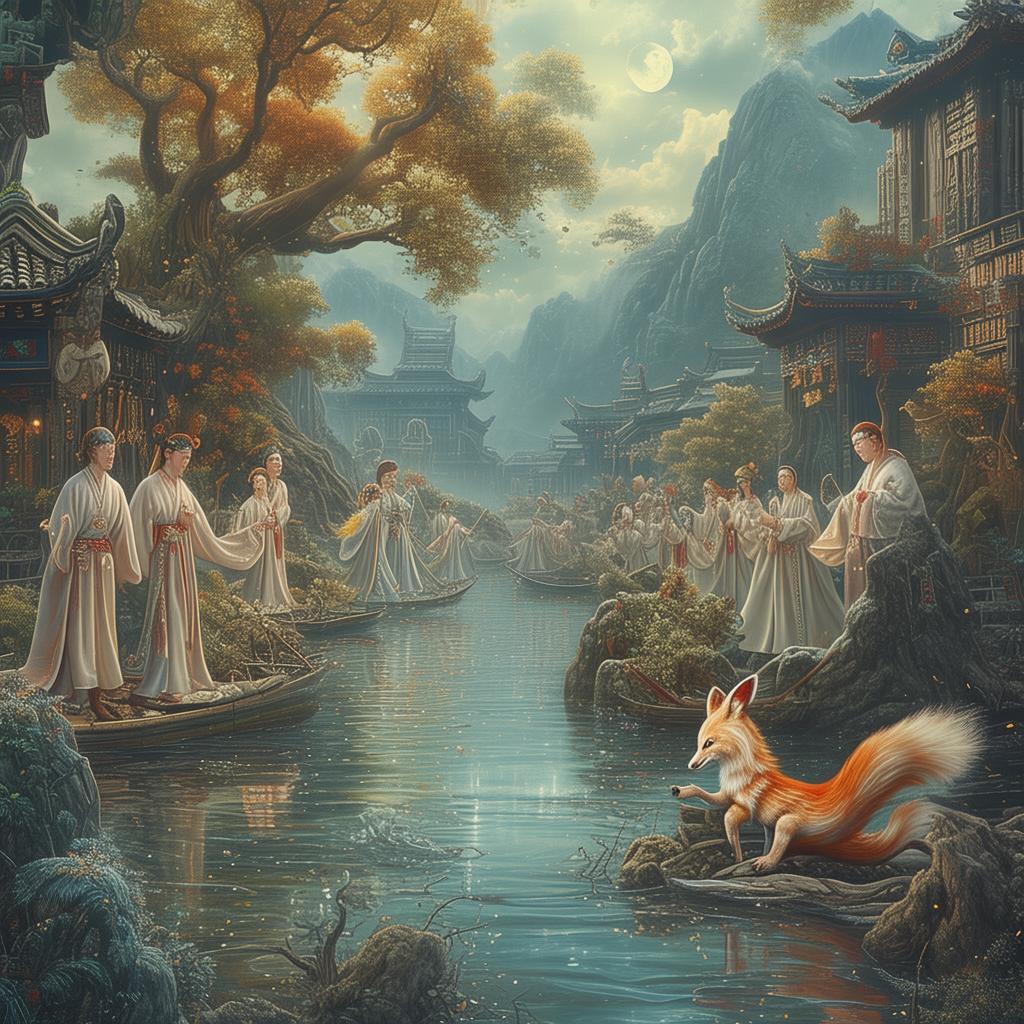The Whispering Well: A Tale of Betrayal and Redemption
In the heart of the ancient village of Ling, there stood a well that had been the lifeline for generations. Its waters were said to hold the power to heal the deepest wounds and reveal the darkest secrets. But the villagers spoke in hushed tones about the Whispering Well, for it was also said to whisper tales of deceit and betrayal, hidden beneath the surface of their lives.
In the days before the harvest festival, the village was abuzz with excitement. The festival was a time for joy, a celebration of the bountiful crops and the harmony of the community. However, the air was thick with undercurrents of tension and whispers of old grievances.
The protagonist of our tale was a young woman named Mei, whose father, the village elder, had been found guilty of a heinous crime. The crime had been so grave that it had split the village in two, with some blaming Mei's father and others vowing to protect him. Mei, torn between her love for her father and the weight of the accusations, had been silent, her heart heavy with the burden of the truth.
The Whispering Well had been silent for years, its secrets buried deep within the earth. But as the festival approached, the well began to whisper again, its voice growing louder with each passing day. The whispers spoke of a hidden truth, a betrayal that had torn the village apart long before Mei's father's crime.
Mei, driven by curiosity and a desperate need to understand the past, decided to investigate the whispers. She knew that to uncover the truth, she would have to delve into the lives of those who had been closest to her father and to face the possibility that the whispers might be her own voice.
Her journey led her to an old woman named Amei, who had once been a close friend of her father. Amei, her eyes aged and her spirit weary, revealed that the betrayal had not been of the village's making but of a man who had been a friend to them all. The man, known as Li, had used his influence to manipulate the villagers against her father, driven by a jealousy that had festered for years.
As Mei listened to Amei's story, she realized that her father had been the victim of a deceit that had been carefully woven to frame him. The well's whispers were indeed true, but the truth was far more complex and painful than she had ever imagined.
Mei's search for the truth took her to the edge of the village, where she found a hidden cave. Inside the cave, she discovered the remnants of a life that had been lived in silence and fear. It was there that she found the final piece of the puzzle, a letter written by Li, confessing to his treachery and his desire to atone for his actions.
The letter revealed that Li had realized the error of his ways before his death and had hidden the letter in the cave, hoping that someone would find it and bring peace to the village. Mei's heart broke as she read the letter, understanding the extent of the pain her father had endured.
With the truth uncovered, Mei returned to the village, her heart heavy but determined. She approached the village elder, the man who had led the charge against her father, and revealed the truth. The elder, taken aback by the revelation, listened intently, his eyes reflecting the weight of his actions.
The village was silent as Mei spoke, the air thick with the weight of the past. When she finished, there was a long moment of silence before the elder spoke, his voice trembling. "I was wrong," he said. "I am sorry."
The words were like a balm to Mei's soul, and she felt a sense of relief wash over her. The village, too, seemed to breathe a collective sigh of relief, as the weight of the past began to lift.

The harvest festival was a somber affair that year, but it was also a celebration of forgiveness and the power of truth. Mei's father was exonerated, and the village came together to heal the wounds of the past.
The Whispering Well remained silent after the festival, its secrets once again hidden beneath the earth. But Mei knew that the well had played its part in revealing the truth, and she felt a deep sense of gratitude for the wisdom that had been passed down through the ages.
As the years passed, Mei became a symbol of forgiveness and truth in the village. The Whispering Well, too, became a place of reflection and hope, a reminder that even the deepest wounds could be healed with the power of truth and the strength of the human spirit.
✨ Original Statement ✨
All articles published on this website (including but not limited to text, images, videos, and other content) are original or authorized for reposting and are protected by relevant laws. Without the explicit written permission of this website, no individual or organization may copy, modify, repost, or use the content for commercial purposes.
If you need to quote or cooperate, please contact this site for authorization. We reserve the right to pursue legal responsibility for any unauthorized use.
Hereby declared.









